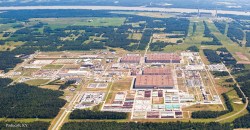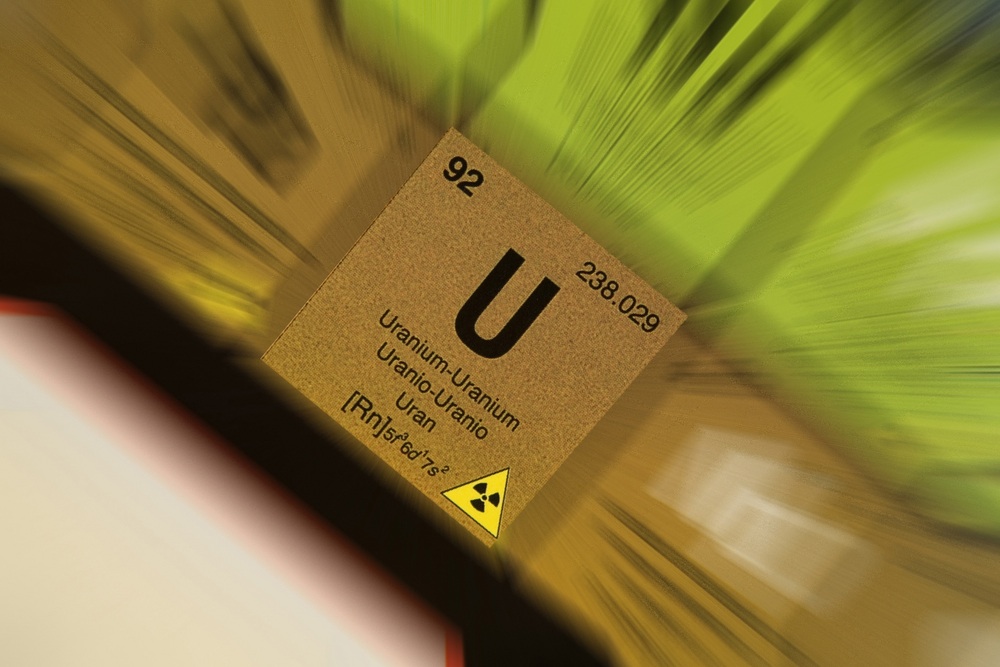
Department of EnergyThe Paducah Gaseous Diffusion Plant will shutter.
In comic books, radioactive disasters make stuff be massive. But in the real world, the Fukushima meltdown of 2011 is having the opposite effect on the worldwide nuclear power sector.
The sector is rapidly shrinking from the Hulk that it used to be, leading the U.S. government to announce on Friday that it is jumping out of the unprofitable uranium enrichment business.
The Energy Department is closing the Paducah Gaseous Diffusion Plant in Western Kentucky at the end of the month. The plant opened in the 1950s to help the nation develop its nuclear arsenal, and in the 1960s it began enriching uranium for power plants. Federal officials say the refinery’s operations, which were privatized in the 1990s, are no longer sustainable. From Lex 18 News:
Soft demand for enriched uranium, stemming partly from the disaster in Japan when a tsunami crippled a nuclear plant, coupled with steep production costs triggered the decision, USEC spokesman Jeremy Derryberry said. Production will be phased out in the next month.
“We’ve been telegraphing for a long time that the plant had a limited lifetime,” Derryberry said. “That was only accelerated by what happened in Japan.”
Japan was an important market for the Paducah plant’s enriched uranium, but nearly all of Japan’s workable reactors have been offline since the March 2011 earthquake and tsunami triggered multiple meltdowns at the Fukushima Dai-ichi plant.
“What that essentially does is take a huge chunk of demand out of the market, at least in the near term,” Derryberry said. “With no demand, there’s an excess of supply. Prices go down. We just haven’t been able to find additional customers for the plant’s capacity.”
The Courier-Journal reports that the land upon which the facility operates is heavily polluted and that the government’s decision to close it has long been anticipated:
A Courier-Journal series in 2000 revealed that waterways, underground water, soil, plants and animals had been contaminated with some of the most dangerous chemicals known, including plutonium and dioxin.
“We will certainly work hard to keep the funding up” for the cleanup, Newberry said.
The Obama administration has been reluctant to keep the plant open. But a year ago, then-Energy Secretary Steven Chu announced a one-year extension under which the federal government and energy suppliers provided a market for the uranium.
But Chu also told [Senate minority leader Mitch] McConnell at a 2011 Senate hearing that 1950s technology used to enrich uranium for nuclear power plants was “energy-intensive, and I would rather us invest in more forward-leaning technologies.”
The closure will hit McCracken County hard, with at least 1,000 uranium enrichment-related jobs set to be lost. Meanwhile, the number of coal jobs in the state is at its lowest level since record-keeping began in 1950.
Some state lawmakers have been trying to give the state’s economy and workforce an Incredible Hulk-colored jolt by pushing the Clean Energy Opportunity Act. The legislation would force utilities to sell increasing amounts of renewable energy, implement energy efficiency measures, and take other labor-intensive strides towards greening the state’s coal-dependent grid.
Despite one projection that the act could sustain as many as 28,000 jobs every year over a decade and reduce electricity prices, the legislature let the bill die last year, with some lawmakers saying it would threaten the state’s coal sector. The legislation was reintroduced in February, but it has yet to receive so much as a committee hearing.



